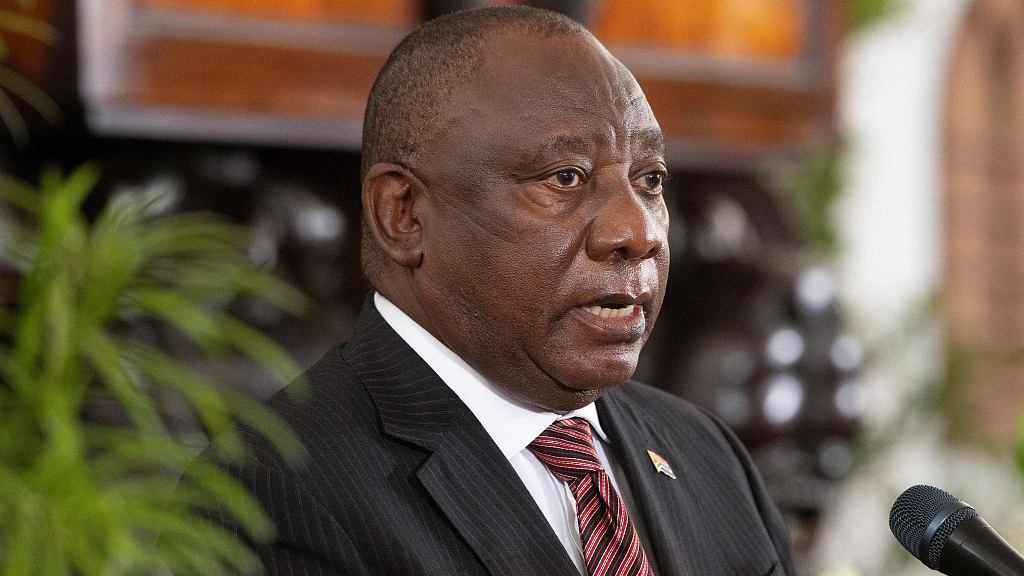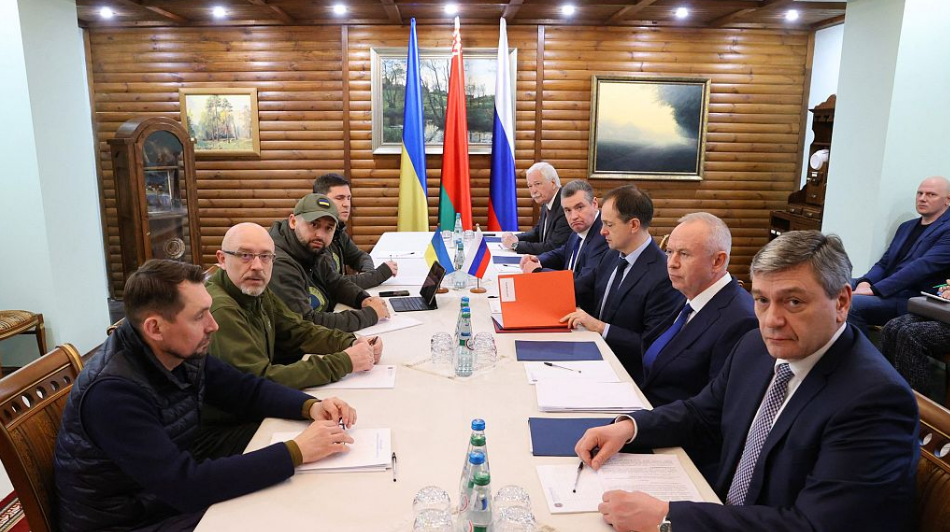
South African President Cyril Ramaphosa. /CFP
South African President Cyril Ramaphosa. /CFP
Editor's note: Stephen Ndegwa is a Nairobi-based communication expert, a lecturer-scholar at the United States International University-Africa and an author and international affairs columnist. The article reflects the author's opinions and not necessarily the views of CGTN.
The bombshell by South African President Cyril Ramaphosa condemning the United States-led North Atlantic Treaty Organization (NATO) for the conflict in Ukraine must have come as a shocker to the West. Further, the South African former freedom fighter and leader of the patriotic African National Congress (ANC) stated categorically that he would not bow to pressure to condemn Russia for its "special military operation."
In what could be seen as South Africa's official position, Ramaphosa stated in South Africa's Parliament last week that "the war could have been avoided if NATO had heeded the warnings from among its own leaders and officials over the years that its eastward expansion would lead to greater, not less, instability in the region."
Basically, the U.S. and its allies have unfairly and forcefully had their way with everyone else in the world for so long, more so Africa, which they still believe is, going by their condescending attitude, technically a "dark continent." Therefore, it must have been rather disconcerting for Ramaphosa to speak truth to power on the Russia-Ukraine conflict.
Ramaphosa's sentiments are representative of the unstated feelings flowing through not just Africa's leadership but the citizenry as well. But it seems like there was extreme pressure for Ramaphosa to state otherwise as a way of giving the impression that Africa supports the West's hegemonic approach.
By coercing one of Africa's most influential leaders to misrepresent the continent's genuine feelings, the West could also have succeeded in alienating the continent from China. If push eventually comes to shove, then the West would have it that Africa would at worst remain neutral, or at best join the anti-Russia brigade.
But in an interview with the Nikkei financial newspaper, Ugandan President Yoweri Museveni disabused this notion by stating that China-style diplomacy was "much better" than the West's. He contended that the West's response to the conflict was full of "double standards" and extolled the virtues of China's diplomatic approach of non-interference in other countries' domestic affairs.
It is also instructive that Ramaphosa's courageous statement came after he had personally talked on the phone with Russian President Vladimir Putin. The latter has actually spoken with several leaders from around the world, while his Ukrainian counterpart has been talking unilaterally to the Western bloc. Therefore, it is rather obvious who is genuine in their angst seeing that, as Ramaphosa acknowledged, the crisis has been building over many years as the international community gave a deaf ear to Russia's grievances about NATO'S intrusive eastward expansion.
The African Union made its own pronounced on the matter on February 24 at the onset of Russia's special military operation and called for the intervention of the United Nations (UN). The organization's statement was bent on seeking Russia's ceasefire and negotiations under the auspices of the UN.
However, subsequent and ongoing revelations of the West's meddling coupled with racial discrimination against Africans during the evacuation of civilians across the borders from Ukraine has brought in a new dynamic.

Talks between delegations from Ukraine and Russia in Belarus' Brest region, March 7, 2022. /CFP
Talks between delegations from Ukraine and Russia in Belarus' Brest region, March 7, 2022. /CFP
Individual countries like South Africa, and Kenya before it, have also already expressed their views. Ramaphosa took a totally different tack from Martin Kimani, Kenya's Permanent Representative, in his statement to the UN. Kimani's February 22 statement seemed to criticize Russia's special military operation. Given that it was a knee-jerk reaction using the stated UN stance, the view today would definitely be different in light of the new developments.
In retrospect, Kenya must be in a quandary about its ultimate position. Since independence, the East African country has had a long cordial diplomatic relationship with Russia. The communist country was a destination for tertiary education for thousands of Kenyan students post-independence.
International rules should not be weaponized and applied to achieve predetermined outcomes favoring certain favorites to the detriment of those presumed powerless and inconsequential in the geopolitical scheme of things. While the West piles pressure on Russia to halt the conflict, it refuses to be accountable for its toxic actions in Ukraine.
Though largely unspoken, forthright statements like Ramaphosa's are currently reverberating around the continent. Experts expect that such observations will soon become common currency as the truth of the conflict unfolds with the debunking of international media propaganda. However, what may not be immediately clear is why Ramaphosa seems to have been given clout to the extent that he was even suggested as a probable mediator.
Well, Ramaphosa is seen as a sincere leader whose views are untainted by geopolitical passions. Moreover, the fact that he comes from Africa means it is assumed that he would have no personal or national stake in any of the warring parties.
An African proverb says, "When a fool becomes enlightened, the clever man is in trouble." Africa has come of age and is not willing to be used as a rubber stamp to undermine or antagonize other countries' genuine grievances. The countries have learned the hard way after experiencing the brunt of divide-and-rule tactics that have stunted their growth and unity for decades.
(If you want to contribute and have specific expertise, please contact us at opinions@cgtn.com. Follow @thouse_opinions on Twitter to discover the latest commentaries on CGTN Opinion Section.)

